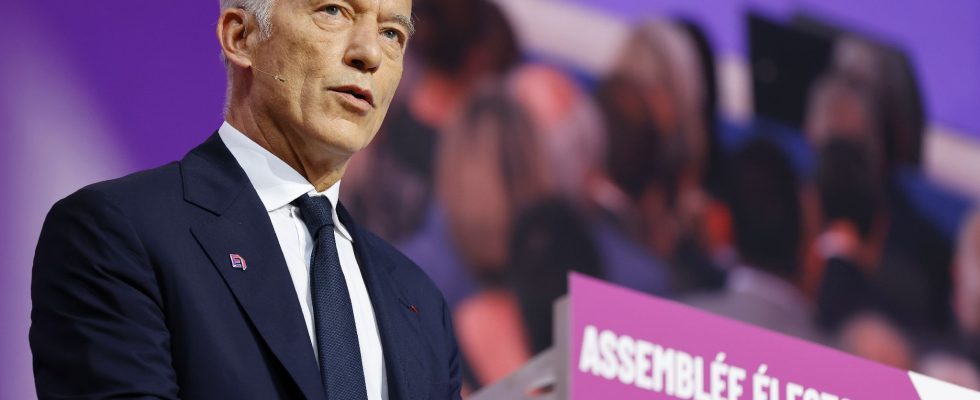And one, and two, and three! With the election of Patrick Martin as President of the Medef, a new page of social dialogue has opened. In the space of just six months, the three headliners of the joint system have been renewed. At the end of March, Sophie Binet, at the end of a congress where the daggers flew, settled in the chair of Philippe Martinez, the general secretary of the CGT. Then, at the beginning of July, Marylise Léon quietly succeeded Laurent Berger at the head of the CFDT. Finally, Thursday, July 6, Patrick Martin, very widely elected with just over 73% of the vote, and 91% participation rate, arrived at the presidency of Medef, to take up the torch from Geoffroy Roux de Bézieux.
On paper, none of these new faces bury the record of its predecessor. Nor is there any question of initiating an ideological back-to-back with the institutions over which they will preside. “Patrick Martin will follow in the footsteps of Geoffroy Roux de Bézieux, of whom he was vice-president for five years”, explains a good connoisseur of employers. On the side of the trade unions, whether Marylise Léon or Sophie Binet, both will, of course, want to make their mark, but without turning their house upside down too much, in particular at the CGT which came out of the Congress more divided than ever. winter. “Their situation is complicated because, on the one hand, they are competitors before new professional elections which are looming; and on the other, public opinion voted in favor of the inter-union and the united front during the last conflict over pensions. “, explains Pierre Ferracci, expert in social policy and founder of the Alpha group.
To regain control after years during which the executive was alone in maneuvering on the social field, the social partners have found the martingale: the autonomous social agenda, proposed by the Medef. Concretely, it is a question of working on a series of themes ranging from the work of seniors to the Agirc-Arrco convention, through the time savings account or even professional wear and tear, without a framework letter or imperative of timing imposed by Matignon. . The objective: to give birth to national agreements which could be found in the law. If, for the time being, the CGT is prolonging the suspense over its participation in this work of collective reflection, the CFDT has already announced that it will be there, like the other central trade unions.
Restore the link
“We are clearly entering a new dynamic”, wants to believe Pierre Ferracci. Especially since opposite, the government, very weakened after the sequence “yellow vests-retirement-riots in the suburbs”, needs these intermediary bodies to rebuild a link. It must be said that between Emmanuel Macron and the social partners, the story had not really started well. When the young president arrived at the Elysée in 2017, he had nothing to do with these unions, which he considered too heavy and not “start-up nation” enough.
And then, he is convinced that social dialogue must take place at the heart of companies or in the branches. Certainly not in these great social conferences which are above all a matter of folklore. Today, the change of direction is obvious. You only have to see how insistently the government wanted to transcribe into law, without changing a comma, the interprofessional agreement on the sharing of value. To the point of making Renaissance deputies who would have been tempted to amend the text understand to put away their pen. Faced with a weakened executive, the social partners now have an avenue to resuscitate a moribund social democracy. Chick!
